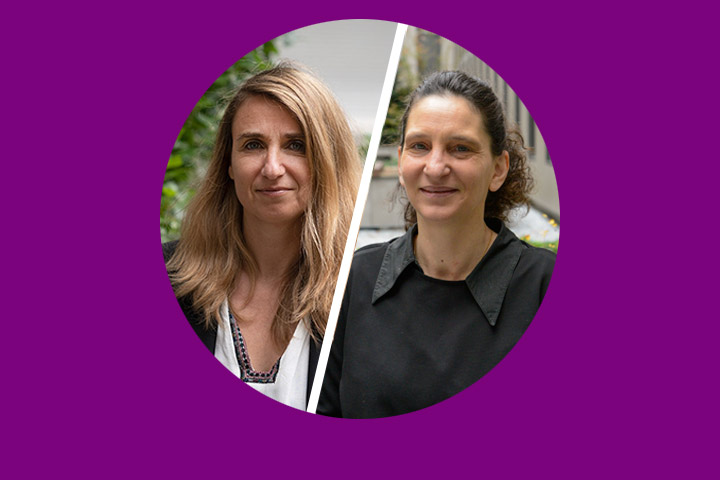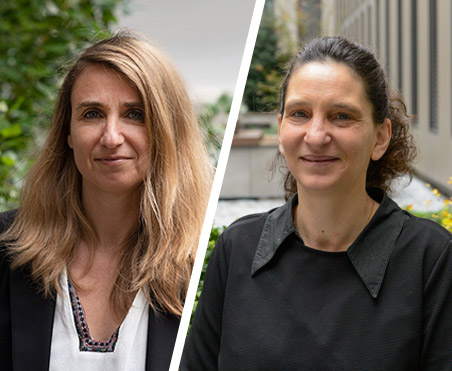
Melina Fatseas et Sylvie Berthoz winners of the call : “Addictive Behaviours and Drugs” by IRESP
 Melina Fatseas and Sylvie Berthoz, from INCIA, are winners of the call for research projects entitled “Addictive Behaviours and Drugs: Prevention, Mechanisms, Identification and Support” call for research projects organised by the Institut pour la Recherche en Santé Publique (Institute for Public Health Research – IRESP) and the Institut National du Cancer (National Institute of Cancer).
Melina Fatseas and Sylvie Berthoz, from INCIA, are winners of the call for research projects entitled “Addictive Behaviours and Drugs: Prevention, Mechanisms, Identification and Support” call for research projects organised by the Institut pour la Recherche en Santé Publique (Institute for Public Health Research – IRESP) and the Institut National du Cancer (National Institute of Cancer).
Melina Fatseas is a senior hospital practitioner (PUPH), head of the addiction unit at Bordeaux University Hospital and Charles Perrens Hospital, and coordinator of the Nouvelle-Aquitaine-Sud Eating Disorders Resource and Coordination Centre (CRC TCA Sud-NA). She is an associate researcher in the EcoPsy team.
Sylvie Berthoz is an Inserm research fellow and co-head of the EcoPsy team.
The project that won the call is: Implementation of a multi-component intervention aimed at reducing addictive eating behaviours: a randomised pilot study.
Description of their project
Disordered eating include syndromic entities such as Anorexia Nervosa (Restrictive and Binge-Purging subtypes: AN-R and AN-BP), Bulimia Nervosa (BN), Binge Eating Disorder (BED) for the most common, but also eating disorder not otherwise specified (EDNOS) such as addictive like eating behaviors or food addiction (FA). Considering the global burden of these disorders, and the significant limitations in treatment approaches, improving clinical treatment outcomes is a major concern. In this perspective, a transdiagnostic conceptualization of disordered eating has been proposed to improve treatment, considering phenotype overlap and common determinants or intermediate phenotypes that could be targeted rather than eating disorder type.
This paradigm shift provides impetus for the development of new treatment approaches that target these determinants irrespective of the diagnosis. In this framework, compulsive overeating has been considered as an addictive phenotype that may manifest through repeated consumption of highly palatable (HP), highly processed complex foods, typically containing high amounts of energy, sugar and fat sharing similar pharmacokinetic profile with addictive drugs. Craving for food, maladaptive cognitive and/or emotional strategies have been increasingly discussed as potential underlying mechanisms of uncontrolled eating behavior and unsuccessful attempts to reduce HP foods intake, thereby significantly influencing and contributing to overeating and food-related outcomes.
Current recommendations emphasize the need to translate these discoveries into effective treatment approaches. In line with these recommendations, our team developed a multicomponent treatment approach including Cognitive-Behavioural Therapy (CBT), Emotional Skills Training (EST), and Cognitive Remediation Therapy (CRT) targeting the underlying transdiagnostic determinants of addictive like eating behaviors.
This pilot interventional study aims to establish the feasibility and acceptability of implementing a brief multi-component group intervention among patients seeking treatment for compulsive eating as well to give preliminary estimates of efficacy in reducing binge eating and food craving at 3-month follow-up, combining standard clinical evaluations with Ecological Momentary Assessment (EMA) method. We believe that our results will emphasize the importance of a multidisciplinary and transdiagnostic approach targeting food addiction, executive functions, emotional regulation, in order to examine the potential contribution of these dimensions in binge episodes, and leading to more realistic, integrated and individualized treatment programs. With Ecological Momentary Assessment data collection, our project will provide “real life” data to study determinants of binge episodes and consummatory behaviors. This original assessment method could give more insight in a further randomized multicenter study on « how » or « where » the intervention has an effect on binge eating symptoms, craving and cue-reactivity.
Last update 24/07/25
